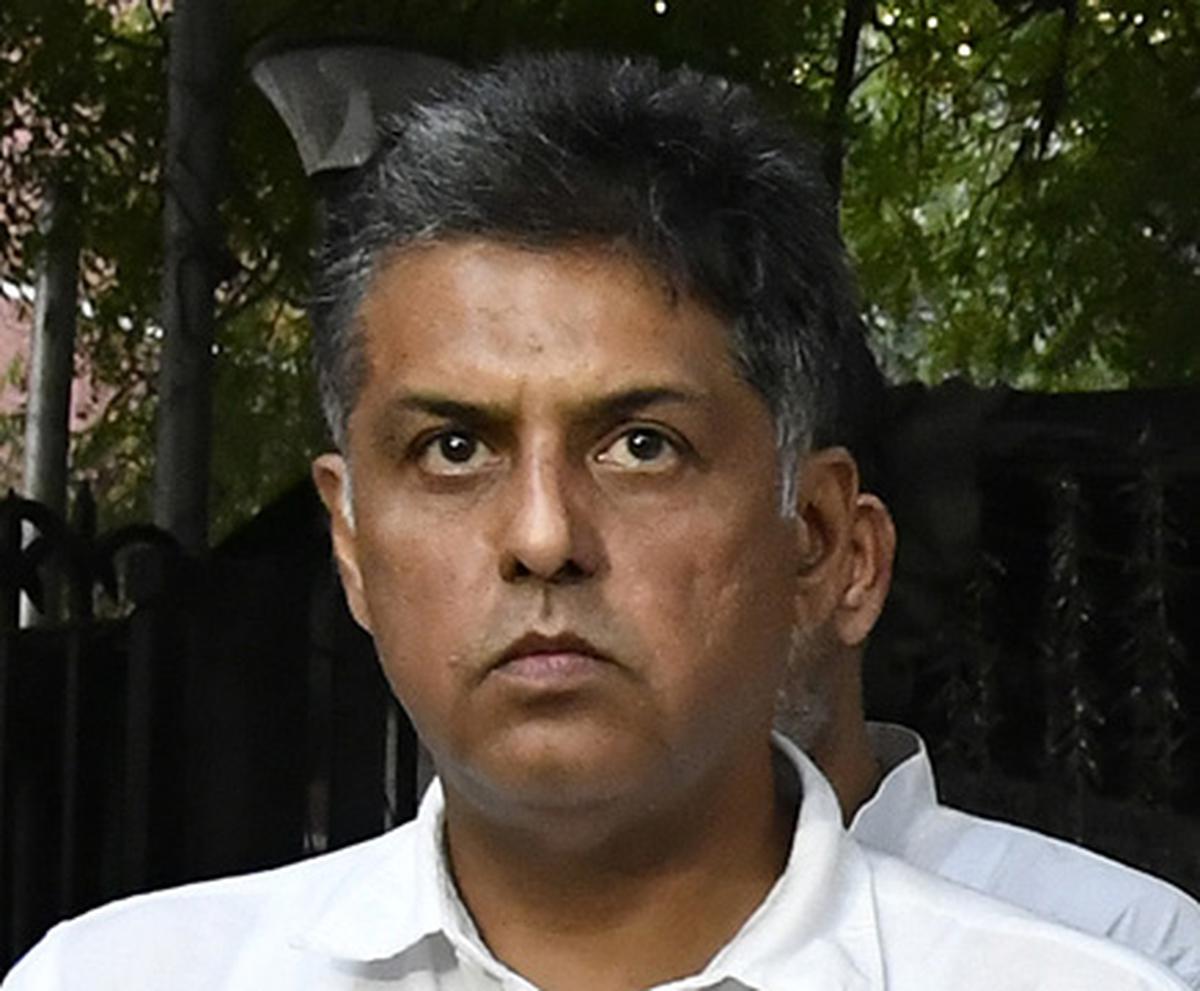
No bigger proof of government’s ‘inefficiency’ than change of CMs in Gujarat: Congress leader Manish Tewari
The Hindu
The BJP had in 2016 replaced the then Gujarat Chief Minister Anandiben Patel with Vijay Rupani, who was replaced by Bhupendra Patel in 2021
Senior Congress leader Manish Tewari on Wednesday claimed there cannot be a bigger proof of a government’s “inefficiency” than the move to change its Chief Ministers in the Bharatiya Janata Party-ruled Gujarat, where the Assembly polls are due next month.
Talking to reporters in Ahmedabad, former Union Minister Tewari hit out at the State government over its “arrogance” while referring to the last month’s Morbi bridge collapse which claimed over 140 lives, and asked why nobody resigned over it and why the “biggest accused”, the wealthy persons and those given the bridge renovation contract, have not been arrested.
The BJP had in 2016 replaced the then Gujarat Chief Minister Anandiben Patel with Vijay Rupani.
Mr. Rupani, who continued as the Chief Minister after the 2017 elections, was last year replaced with Bhupendra Patel, who is also the BJP's chief ministerial face for the Gujarat Assembly polls to be held on December 1 and 5.
Mr. Tewari said, “There cannot be a bigger proof of a government’s inefficiency than the fact that the CMs were required to be shown the door. What will be the plight of (the current CM) is for the public to decide.”
“There cannot be a bigger living example of governance failure than the fact that you have to change your Chief Ministers thrice,” he said.













